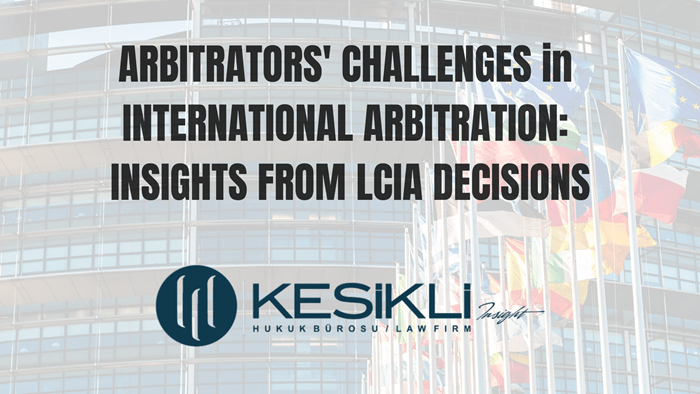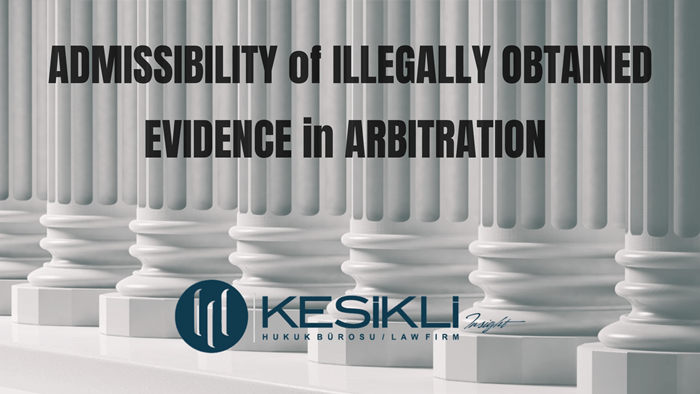The Problem of ex officio Application of Law by the Arbitrator in International Arbitration
In Turkish civil procedural law, it's the judge's responsibility to decide which legal rules to apply to resolve a dispute. The duty of identifying and applying the relevant legal norm to the material facts is outlined in Article 33 of the Civil Procedure Code No. 6100 (HMK - Official Gazette: 04.02.2011-27836): "The judge shall apply Turkish law ex officio." Thus, a judge is obliged to know and correctly apply Turkish law.
This duty, a fundamental principle of legal proceedings (iura novit curia), is closely linked to the principles of "brought by the parties" and "bounded by the requests" in civil procedural law. It's crucial for determining the correctness of court decisions on appeal, as incorrect or inadequate application of law by the judge can lead to the reversal of the court's decision. Typically, parties are required to present facts, prove them with evidence, and assert their claims clearly. However, they are not responsible for presenting legal grounds. Even if parties do not present any legal grounds or rely on incorrect ones, judges are expected to find and apply the correct legal rules to the facts.
In legal systems, particularly those in Continental Europe, the principle of a judge's self-application of law aims to ensure correct legal application and uniformity of jurisprudence. It also protects parties from the harm caused by their ignorance of the law, thus ensuring justice in the effective exercise of their right to legal recourse.
The issue of whether arbitrators are obligated or authorized to apply the law arises when parties choose arbitration – a neutral third-party decision-making process – over state courts. Arbitration, based on party autonomy and procedural flexibility, shouldn't be strictly bound by the same principles as state judiciary. However, if arbitrators do not self-apply the law, especially when they don't have the power to decide according to equity and conscience, it would be inconceivable for them to make contradictory or incorrect decisions that would nonetheless be effective. Considering the prohibition of review (revision) of content in the recognition and enforcement of foreign arbitral awards under the 1958 New York Convention and local arbitration legislations, incorrect application of the law by arbitrators often won't affect the enforceability of their decisions. Therefore, the regime governing international commercial arbitration, the approach to arbitration, and its role vis-à-vis state judiciary are crucial in determining the preferability of arbitrators assuming a judge-like role.
According to international treaties and local arbitration legislations, parties can freely and jointly determine the evidence to be presented, how it's presented, the selection procedure of arbitrators, the duration of arbitration proceedings, how expert examinations are conducted, and many other procedural matters like the procedure and location of hearings. In such a flexible procedural system, arbitrators' self-application of law and basing their decisions on legal grounds not presented by the parties creates a contradiction. On the other hand, if arbitrators are accepted to self-apply the law, the extent of this authority becomes a question. If considered as a power, it must be determined whether parties can prevent arbitrators from applying legal grounds necessary for the specific dispute. If arbitrators act to apply the law correctly despite not being granted this authority by the parties, would this lead to the annulment of the arbitral award for exceeding authority or violating procedural rules, or refusal of recognition or enforcement under the prohibition of surprise decisions?
These issues are subjects of serious debate in international commercial arbitration. A decision by the Swiss Federal Court states that, unless parties limit the discretion of arbitrators, self-application of the law by arbitrators is a duty but only limited to domestic law, with no obligation to apply foreign law on their own. This approach does not conflict with the principle of being bounded by the requests (not ultra petita). (Bank Saint Petersburg PLC, St. Petersburg v ATA Insaat Sanayi ve Ticaret Ltd., 2nd March, 2001, 4P.260/2000). The Court also examines whether the legal grounds of the arbitral award were foreseeable by the parties. Awards based on legal grounds not presented by the parties and not discussed by the arbitrators have been annulled under the prohibition of surprise decisions. Accordingly, the Federal Court has held that basing a decision on a legal provision not discussed by the parties and unrelated to the dispute is a violation of the right to be heard (4P.100/2003; 30.09.2003). However, if the legal basis of the arbitrator's decision was clearly foreseeable by the parties, even if they were not given the opportunity to comment, it does not violate their right to be heard (4A_56/2017; 11.01. 2018).
Finding an answer within the scope of Turkish international arbitration legislation and jurisprudence is challenging. The International Arbitration Law (IAL - Official Gazette: 05.07.2001/24453) does not explicitly address arbitrators' self-application of law. According to Article 12/C of the IAL, "The arbitrator or arbitral tribunal shall decide according to the contract terms between the parties and the legal rules they have selected to apply to the substance of the dispute. In interpreting and supplementing these contract terms, the related commercial customs and practices shall also be considered. The selection of a particular state's law implies the direct application of its substantive law unless otherwise specified, not its conflict of laws or procedural rules. If the parties have not agreed on the legal rules to apply to the substance of the dispute, the arbitrator or arbitral tribunal shall decide according to the substantive law rules of the state most closely connected to the dispute." Therefore, arbitrators are obligated to apply the chosen law of the dispute in its entirety and all its rules.
On the other hand, the Turkish Supreme Court (Yargıtay) in its decision dated 18.10.2006 (E. 2006/609 K. 2006/656) defines the regime applicable to voluntary arbitration within procedural law as follows: "As is known, jurisdiction is generally exercised through courts, while arbitration is an exceptional institution in our procedural law. Therefore, the rules relating to arbitration should not be broadly interpreted as general procedural rules, and unless explicitly stated, it's not feasible to apply our procedural law principles directly to arbitration. Similarly, the retroactive effect of procedural provisions cannot be applied to the rules of optional arbitration, which are based on a contract. In an arbitration agreement – the inclusion of an arbitration clause – the rules and law determined explicitly by the parties will apply. Changes to this can also be made within the framework of the principles determined in the contract." This approach by the Supreme Court indicates that if parties do not expressly grant arbitrators the authority to self-apply the law, the arbitral award can be annulled under Article 15/A/f of the IAL for "proceeding with the arbitration in a manner contrary to the procedural agreements of the parties."
Additionally, the Supreme Court has stated that if arbitrators fail to apply or incorrectly apply the substantive law rules applicable to the substance of the dispute, this should be considered a violation of public order (Yargıtay 13th Civil Chamber, E. 2011/19737 K. 2011/25406, 13.11.2012). In an earlier unification of jurisprudence decision by the Supreme Court, non-compliance with the substantive law rules to be applied by the arbitrators was recognized as a ground for appeal (Yargıtay Unification of Jurisprudence Grand General Assembly, E. 1994/4 K. 1994/1, 28.01.1994). However, considering the prohibition of review, deeming an arbitral award that bases its decision on a legal ground not presented by the parties as subject to annulment or rejection of recognition or enforcement is inconsistent.
Therefore, in our opinion, it is crucial to determine whether the "iura novit arbiter" principle is accepted within the scope of the authority granted by the parties to the arbitrators or the procedural rules they are required to follow. If parties expressly authorize arbitrators to self-apply the legal rules applicable to the substance of the dispute, and if the procedural rules they are required to follow mandate this, then it would be natural to accept that arbitrators have the authority to self-apply the law.
@ Dr. Ömer Kesikli
Let's Get Connected!



